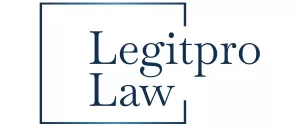- within Corporate/Commercial Law topic(s)
- in United States
- with readers working within the Automotive, Utilities and Law Firm industries
- within Corporate/Commercial Law, Government, Public Sector and Energy and Natural Resources topic(s)
- with Senior Company Executives, HR and Inhouse Counsel
Understanding SEBI's 2025 FAQs on Research Analysts: A Business-Centric Analysis
The Securities and Exchange Board of India (SEBI) recently released a thorough list of FAQs to help explain the implementation of the SEBI (Research Analysts) (Third Amendment) Regulations, 2024. These FAQs are intended to minimize uncertainty, simplify compliance, and match the expectations of research analysts, financial intermediaries, and fintech platforms with SEBI's investor protection objectives. Rather than repeating the legal wording, the FAQs emphasize practical clarity on how research analysts must arrange their work, which activities require registration, and how businesses should reconcile independence with economic efficiency. The following is a concise business-focused explanation of what these clarifications represent.
Simplifying the Regulatory Landscape
1. Broader Definition of 'Research Analyst'
The FAQs significantly expand the scope of regulation to include a broader range of stakeholders in the securities research ecosystem. Under the revised framework, any entity or individual involved in the planning, publication, distribution, or commercialization of investment analysis, including fintech enterprises, digital advisory platforms, and technology-driven research aggregators that use algorithmic or AI-based analytical tools, is now subject to SEBI regulatory oversight. Individuals doing clerical, administrative, marketing, or strictly operational support jobs are specifically exempt from the registration requirement. This difference ensures that compliance duties are targeted particularly at experts who are directly engaged in the writing, verification, or distribution of research, ensuring proportionality and clarity in regulatory enforcement.
2. Recognition of Emerging Roles
SEBI has officially acknowledged Independent Research Analysts (IRAs) and Proxy Advisers under a single regulatory framework. Independent Research Analysts, including single proprietorships, may apply for direct registration with SEBI, increasing participation to individual experts. Proxy Advisers must disclose their methodology for data validation and keep detailed records of their voting recommendations. Collectively, these methods strengthen institutional accountability, raise governance standards, and promote more openness in the creation and distribution of research-based recommendations.
3. Streamlined Validity and Compliance Officer Role
Registrations awarded under the SEBI (Research Analysts) Regulations are now permanently valid, subject to renewal every five years by paying the specified regulatory charge. Each non-individual research entity is required to appoint a Compliance Officer who is in charge of ensuring continual adherence to SEBI's regulatory framework and accompanying circulars. The Compliance Officer may also execute other professional tasks inside the firm, providing they have the necessary credentials and certifications recognized by SEBI. This organized approach strikes a compromise between operational efficiency and regulatory responsibility, ensuring that entities retain supervision while allowing for flexibility in organizational resource allocation.
Strengthening Integrity and Disclosure
1. Enhanced Transparency Standards
Analysts who engage in any public or digital forum must expressly declare their SEBI registration status, as well as any financial interests in the securities or businesses being discussed. Journalists are exempt from registration requirements; nevertheless, they are required to base their opinion or analysis on research published by SEBI-registered businesses. Furthermore, the FAQs require that any research material, including content generated using artificial intelligence or automated analytical tools, clearly state the publishing entity's SEBI registration details, ensuring transparency and accountability in all public communications.
2. Client Segregation and Conflict Prevention
SEBI requires a rigorous and systematic separation of research and distribution responsibilities to maintain analytical integrity and minimize any conflicts of interest. However, the FAQs provide some operational flexibility by recognizing that entities may engage in both activities in limited circumstances, such as the distribution of mutual fund units or Portfolio Management Services/Alternative Investment Fund (PMS/AIF) products. Additionally, institutional customers may give standardized electronic disclaimers to legally recognize and consent to such multiple engagements. This calibrated approach allows professional investors to make educated judgments about possible overlaps while simplifying compliance duties and ensuring the overall integrity of SEBI's regulatory protections.
3. Recordkeeping Made Digital
All client interactions, correspondence, and the distribution of research materials must be documented in thorough, time-stamped, and retrievable electronic records. However, the added need of independent audio recordings will not apply to communications that naturally have an auditable digital footprint, such as emails, digitally logged exchanges, or automatically preserved system interactions. In addition to reducing procedural redundancies and streamlining compliance processes, this clarification aims to maintain the integrity, validity, and auditability of such documents for regulatory review, inspection, and verification.
Impact on Businesses and Market Practices
1. Operational Adjustments for Fintechs and Boutiques
The FAQs restate SEBI's determination to broaden its regulatory purview to include AI-powered fintech companies and digital research aggregators that produce, disseminate, or profit from investment-related analysis. Now, organizations that offer "value-added" or packaged advice material must either get direct registration or work with a legally registered SEBI research analyst to demonstrate compliance. By strengthening SEBI's oversight structure throughout the digital financial sector, this regulation expansion guarantees investor safety, analytical precision, and uniformity in research quality. It also emphasizes SEBI's goal of creating a financial research environment that is open, technologically advanced, and focused on responsibility.
2. Increased Compliance Costs for Smaller Entities
Independent research analysts and boutique organizations may have significant financial and operational obstacles in meeting deposit requirements, getting required certifications, and complying to regulatory segregation standards. In the absence of distinct compliance standards depending on size, scale, or business strategy, smaller firms may face disproportionately high compliance expenses in relation to revenue capacity. Such imbalances may limit their capacity to maintain independent, unbiased research activities and may unwittingly hinder the engagement of smaller actors in the research ecosystem.
3. Institutional Client Relief and Ease of Doing Business
The FAQs make procedural improvements aimed at institutional and non-fee-paying clients, formally recognizing bundled service arrangements as legitimate client relationships and allowing the use of a disclosure-based compliance mechanism instead of detailed, individualized consent procedures. This change aims to make institutional research engagements easier by decreasing unnecessary documentation requirements, increasing operational efficiency, and ensuring transparency and regulatory integrity within the research services framework.
4. Reinforced Market Credibility
From a market standpoint, these measures are expected to greatly boost investor trust by encouraging consistency in disclosure standards and increasing responsibility throughout the research ecosystem. Entities that proactively align their operational frameworks with these regulatory requirements stand to achieve increased stakeholder trust, market reputation, and cross-border credibility. This is especially true for organizations that integrate comprehensive AI governance mechanisms, robust data validation systems, and transparent analytical methodologies into their compliance and research functions, thereby setting new standards for integrity and professionalism in the financial services industry.
Persistent Gaps and the Road Ahead
Despite the FAQs' wide reach, one crucial problem remains unresolved, regulatory convergence between research analysts and investment advisers. Investment advisors typically provide client-specific, individualized financial advice, whereas research analysts provide broad market information for public publication. Applying the same compliance responsibilities to both groups may result in disproportionate regulatory costs for smaller or independent research companies. To achieve balanced regulation, SEBI may explore adopting a proportionality framework that separates requirements depending on the kind and magnitude of activities, protecting investor interests but not limiting innovation or independent market research.
Takeaways for Businesses
- Review the Registration Scope: Conduct a thorough examination of your business model to see whether your research, advising, or analytical services meet SEBI's definition of a research analyst. This involves examining AI-driven analytics, computational tools, data aggregation platforms, and any publicly available material that may affect investment decisions. Firms should also document their internal evaluations, keep an up-to-date compliance map, and seek legal counsel if their activities intersect with consulting or fintech operations to guarantee prompt registration or exemption determination.
- Strengthen Compliance Infrastructure: Creating a strong internal compliance framework by appointing or training a qualified Compliance Officer who will supervise adherence to SEBI's regulatory standards. Implement detailed electronic audit trails to guarantee the traceability of all research-related activities, approvals, and client contacts. This should involve keeping accurate records of analytical procedures, report approvals, and disclosure validations. To guarantee long-term regulatory compliance and operational integrity, entities should conduct frequent internal evaluations and compliance training programs.
- Implement Disclosure standards: Develop complete disclosure standards that require consistent on-screen, digital, and publication-level exposure of SEBI registration information in all research reports, media communications, and investor-facing materials. These disclosures should contain the registration number, the status of the organization or individual analyst, and any applicable disclaimers or conflict-of-interest declarations required by SEBI. The goal is to promote uniform openness across all means of distribution, therefore increasing public trust in the legitimacy and regulatory compliance of the research being presented.
- Separate Advisory and Distribution Units: Create a clear and formal distinction between research and product distribution roles, both in physical and digital settings. Implement unique control methods, access rights, and supervisory structures to guarantee that research efforts are separate from commercial distribution goals. This segregation should be established in the firm's compliance procedures and supported by audit trails demonstrating compliance with SEBI's conflict-of-interest mitigation guidelines.
- Document Research Rationale: Make sure that every research suggestion or analytical result is backed by clear, data-driven reasoning, as well as proper documentation of the methodology, assumptions, and data sources utilized to develop it. Firms should keep detailed analytical records to establish the objectivity, correctness, and dependability of their conclusions. Such evidence must be easily available for internal audits and regulatory evaluations, bolstering the credibility of research findings and assuring adherence to SEBI's evidential and accountability criteria.
Conclusion
SEBI's 2025 FAQs mark a significant shift from abstract regulatory aim to a structure founded on actual responsibility and enforceable governance. The guideline emphasizes SEBI's goal of transforming compliance from a procedural formality to a substantive mechanism for transparency, dependability, and market integrity. This accomplishment demonstrates to organizations that regulatory conformity and innovation are not mutually incompatible goals; rather, they may work together when governance is integrated into strategic decision-making. Organizations that view compliance as a long-term investment in institutional credibility, investor trust, and ethical market behaviour will not only reduce regulatory risk, but also improve their competitive position in an increasingly complex financial environment.
Reference:
Verma, A. (2025b). Circular SEBI/HO/MIRSD/ MIRSD-POD/P/CIR/2025/105. In SEBI (https://www.sebi.gov.in/sebiweb/other/OtherAction.do?doFaq=yes)
The content of this article is intended to provide a general guide to the subject matter. Specialist advice should be sought about your specific circumstances.


